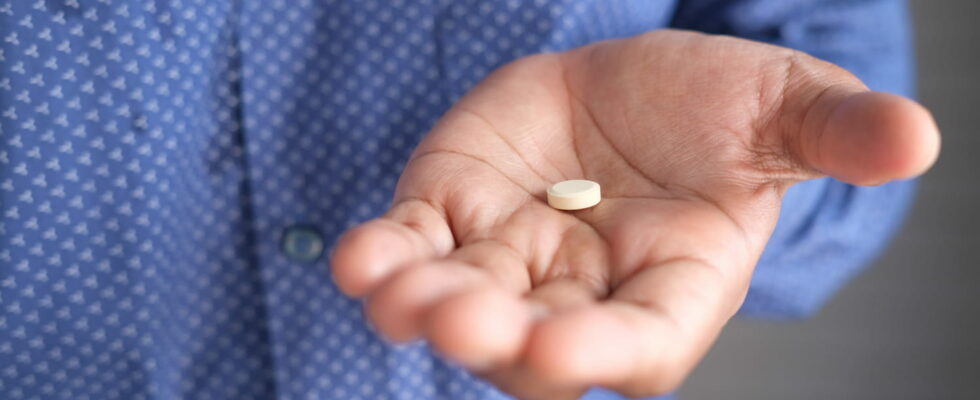Treatment of hair loss and prostate adenoma in men, finasteride (Propecia, Chibro-Proscar) can cause serious psychiatric and sexual disorders.
Like all medications, it can have side effects. But there are perhaps more numerous than initially estimated by the health authorities. In October 2024, the National Medicines Agency announced the reassessment of the benefit/risk balance of Finasteride because of its adverse effects, in particular suicidal thoughts reported in patients.
What is Finasteride?
Finasteride is the active substance in Chibro-Proscar® used in urology for urinary disorders linked to benign prostatic hypertrophy (adenoma) and Propecia®, indicated for the treatment of hair loss (alopecia) in men aged 18 at 41 years old. It is a medicine reserved for men. “The action of finasteride is to reduce the level of dihydrotestosterone, a hormone that promotes hair loss and also normal growth of the prostate,” explains Dr Charles, head of the urology department at Poitiers University Hospital. The drug Propecia® 1 mg like Chibro-Proscar® 5 mg and their generics are not available over the counter but only on medical prescription.
How effective is it?
The effects of Finasteride generally appear 3 to 6 months after starting treatment and often fade 6 months after stopping treatment. “This medicine is especially effective when alopecia is treated before it reaches too advanced a stage. This is a long-term treatment which provides satisfactory results after several years (around 5 years), according to the doctor. This medication is effective in a few months on obstructive urinary symptoms.”
Side effects that can be serious
Serious cases of psychiatric disorders and sexual disorders (which can sometimes persist for a long time after stopping treatment) are reported, linked to the hormonal action of the drug. Additionally, suicidal ideation has been recognized as a potential adverse effect for two medications containing finasteride (Propecia 1 mg and Chibro-Proscar 5 mg). The time it takes for side effects to appear varies, from a few days to a few years after the start of treatment. These side effects are:
- increased breast size and tenderness (gynecomastia)
- erectile dysfunction,
- ejaculation disorders,
- testicular pain,
- decreased libido
- anxiety,
- depression,
- suicidal thoughts likely to lead to suicide
- allergic reactions such as hives and itchy skin
Very rarely, breast cancer has been observed in men treated with finasteride. However, it has not been confirmed to date that finasteride is responsible for this cancer. The duration of adverse effects varies from one patient to another.
What to do if you experience side effects?
If you are being treated with finasteride, and you suffer from psychological problems or sexual problems, theMedicines Agency advises:
- Talk to your doctor as soon as possible;
- If you are being treated for alopecia, in the event of psychological problems, stop your treatment;
- Make a adverse reaction report.
Side effects may persist after stopping treatment and in some cases for an indefinite period.
Thanks to Dr Thomas Charles, head of the urology department at Poitiers University Hospital.
